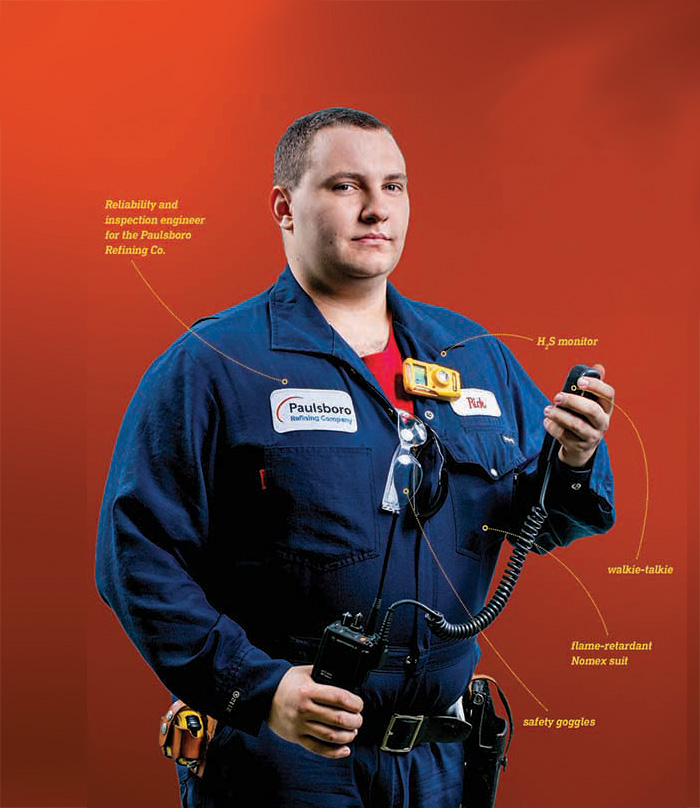RICK TREDINNICK
SENIOR, MECHANICAL ENGINEERING
Every year, more than 5,700 students discover their careers through the Drexel Co-op program — a signature model of education that balances classroom theory with paid job experience within a buzzing network of nearly 1,700 co-op employers in 51 countries. What does a Drexel co-op look like? In this regular feature, we ask a student fresh off his most recent co-op to show us.
THE CO-OP
My third and final co-op for the BS/MS program in mechanical engineer-ing was as a reliability and inspection engineer for the Paulsboro Refi ning Co. in Paulsboro, New Jersey. I helped to maintain equipment in the refinery, like tanks, heat exchangers, vessels, towers — anything in the refinery that is not moving. When things go “Snap, crackle, pop,” we fix it. And in a refinery, pretty much everything needs fixing. Part of the job takes place in the office, making sure the parts we need to make repairs are up to the specifications set by the American Society of Mechanical Engineers. The other part is in the refinery, checking the equipment for cracks or leaks.
THE OBJECTS
I’m holding a walkie-talkie. Everyone uses the radio in the refinery to communicate the work that’s being done and if anything is going wrong. And for safety reasons; they really take safety seriously at the refinery. That’s why I have the safety goggles, a hard hat (not pictured) and the H2S monitor on my collar. Everyone has to wear the monitor at all times; since part of the oil refining process is stripping the sulfur from the oil, we have to pump it with hydrogen, and that makes hydrogen sulfide gas, which can asphyxiate you. If the H2S is too high, the monitor will vibrate and sound an alarm and you have to immediately leave the area. And lastly, this is a flame-retardant Nomex suit, which could save my life even though it kind of makes me look like a NASCAR driver or a gas station attendant.
THE TAKEAWAY
I learned so much about skilled labor on the job, things I couldn’t learn in a classroom. I also didn’t know a thing about the refining industry before this experience. I knew that oil is used everywhere, but I wanted to know where it came from, I wanted to get the nose and the tail of the industry. That’s what’s great about co-op at Drexel. You get to see what you like and don’t like. You get a look into your future. I get to work with these people and say “Hey, that could be me.” I get a look at the hours, the pay, the overtime, and are these workers happy? Co-op is how you get to see the engineer working 40–50 hours a week and what they are doing with their Drexel degree.
……………………………………
Do you want to be in Drexel Magazine?
Drexel Magazine is looking for students to pose for a photo feature describing the Drexel Co-op Program.
You’ll need to bring a “prop” that represents your co-op job. For example, a research-based co-op student might wear a lab coat; a student with a marketing job may bring a product they helped to promote. We’ll run the photo with a paragraph about what you do and how the object represents your co-op.
Interested? Email a sentence about your co-op and what you would bring to the shoot to magazine@drexel.edu by April 14, 2017.



